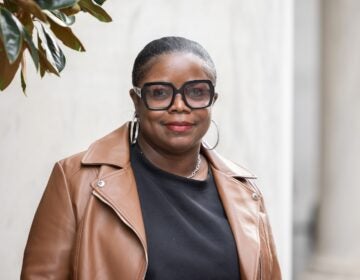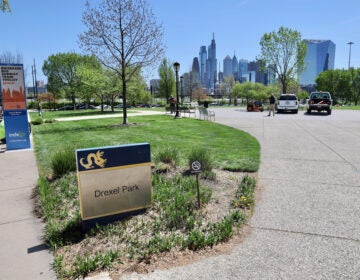Chestnut Hill Community Association expects big changes for how projects are reviewed
With implementation of Philadelphia’s new zoning code only a few months away, members of the Chestnut Hill Community Association are still trying to reconcile how their established zoning review process will mesh with the city’s.
While the new code puts community zoning variance review in the hands of a roster of registered community organizations (RCOs), meant to create a clearer and more predictable process citywide, some worry it could remove the motivation for property owners to indulge local civic organizations, who can sometimes require months of community meetings before agreeing to support or reject a project.
In Chestnut Hill, that means the CHCA’s powerful Land Use, Planning and Zoning committee, which meets each month to review applications for variances within the historic neighborhood. Members include architects, designers and city planners who pore over site plans and renderings, and in cases that could impact the neighborhood at large, near neighbors are also brought in.
The CHCA regularly holds project review meetings but the results aren’t always predictable. It can also prove frustrating for property owners: One resident looking for the committee’s nod on a small deck on the side of his house left a recent LUPZ committee meeting empty-handed.
Comments from the committee members indicated they’d prefer the deck on the back of the Gravers Lane house, that the drawings he offered weren’t detailed enough, and at least one remarked about his use of a South Jersey-based builder rather than someone from the neighborhood.
“Just tell me what to do. I’ll do whatever you tell me to do,” the resident told committee members, leaving with a list of additional questions and information to provide.
He’ll likely be back at next month’s meeting, though, since he needs a letter of approval, or at least of non-opposition, from the CHCA to include with his formal variance application to the city’s zoning board. Applicants in zoning variance cases often don’t get far in front of ZBA chair Lynette Brown-Sow without some proof of civic support.
Under the new zoning code, property owners would provide the names of the RCOs they have to contact and meet with within 45 days — and in Chestnut Hill, that could conceivably be any number of groups, from the CHCA to the Chestnut Hill Historical Commission to the Friends of the Wissahickon. Owners would be bound to hold one meeting, and each RCO involved could send its own response to the same variance application.
At one point, LUPZ members floated the idea of getting the CHCA designated as the primary RCO in the neighborhood, but that met a cool response from city officials, who have been reluctant to get involved in neighborhood king-making.
“The reality is that the new zoning code is going to have a pretty large effect on what happens in Chestnut Hill,” said Matt Wysong, Northwest planner for the city Planning Commission.
In preparation for the August implementation of the new code, LUPZ members are now considering a revamping — somewhat of a streamlining — of their zoning and development review process.
Outlined at last week’s LUPZ meeting by Larry McEwen, a co-chair of the CHCA’s development review committee (DRC), the changes are meant to maximize the groups’ opportunity to give meaningful input on plans but do so within the more compressed time frame of the RCO process.
The list of suggestions McEwen offered would also mean the CHCA’s various committees, some of which share members, could all meet on the same night to review proposals. This might be the most radical change, as the standing committees — Traffic, Transit and Parking, Development Review, Historic Design and Aesthetics – currently each meet separately, requiring multiple appearances for both property owners and the lawyers, architects and designers they hire.
The changes McEwen suggested would still retain a need for multiple meetings in many cases, but for minor, unopposed ones, it could make for a one-shot deal.
“If [an application] had clear neighbor support, it would be possible for that person to stay for the board meeting” and a vote of support or denial in one night, McEwen said.
For larger or controversial projects, a DRC meeting on the third Wednesday of the month which could function as an official meeting for projects referred to RCOs within 19118. Other local RCOs would be included, and the results of that meeting would be the motion to support or reject reported to the CHCA’s board and sent to the zoning board and planning commission.
“We’re still pressing the planning commission to pursue this multi-meeting process that we have,” McEwen said. “The thing we’re trying to avoid is a lot of different groups sending a lot of different messages.”
Other LUPZ members had similar concerns. Joyce Lenhardt said some of the maneuvering seemed premature and wondered “are we trying to solve a problem that doesn’t exist?” LUPZ co-chair John Landis said changes in the process would make it even more important that the CHCA widely publicize the information they require, so property owners can come in prepared.
Landis said the LUPZ will continue consulting with the city and in particular with Eva Gladstein, executive director of the zoning code commission (ZCC), but has stopped short of asking for a formal hearing on its concerns.
NewsWorks has partnered with independent news gatherer PlanPhilly to provide regular, in-depth, timely coverage of planning, zoning and development news. Contact Amy Z. Quinn at azquinn@planphilly.com.
WHYY is your source for fact-based, in-depth journalism and information. As a nonprofit organization, we rely on financial support from readers like you. Please give today.




